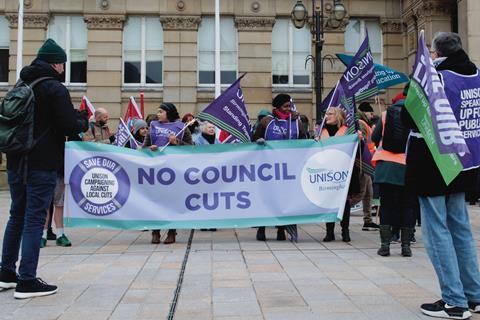A new code of practice on good governance, balancing the books and the potential of artificial intelligence were all prominent topics
The spring conference of Lawyers in Local Government provided a platform for the membership body to ‘soft launch’ a code of practice on good governance for statutory officers.
The code, developed with the Chartered Institute of Public Finance and Accountancy, and Solace, a representative body for chief executives, sets out expectations for the three statutory officers who maintain a council’s corporate health and effectiveness: chief executive, chief financial officer and monitoring officer.
Lawyers were consulted on the code. Bevan Brittan legal director Philip McCourt, who helped draft it, recalled one lawyer taking issue with the introduction, which spoke about the ‘privilege’ of being a statutory officer. McCourt disagreed, telling this month’s conference that a monitoring officer involved in planning committees can walk into a town or city centre, look at a community building and say to themselves, ‘Wow, I was a part of that’.
The three officers ‘are woven into the fabric of any local authority decision, and if that’s not a privilege, then I don’t know what is’, McCourt said.
The code sets out seven standards: understand governance; act wisely; lead ethically; act effectively; resource the roles; build resilience; and deliver sound decision-making. ‘If you’re going to speak truth to power, you have to understand what the powers are, what are the levers, what people can and cannot do, know what’s going on and know what to say to people to make this message land – as opposed to simply being blocked or opposed. Hopefully the code eases that process,’ McCourt said.
Also on the conference agenda: how lawyers can help balance the books in an environment of underfunding. On the notion that statutory services cannot be touched, Anthony Collins partner Claire Ward pointed out that everything the council does is statutory – the issue is how the council does it. For example, the Highways Act imposes a duty to maintain the highway, but it does not say how. ‘Do not ever let an officer say, “You cannot touch this, it’s statutory”. I hope it’s statutory because otherwise we’re in trouble,’ she said.

Service users may need to ‘face up to the reality’ that enhanced services will not be available forever, noted Birmingham City Council’s deputy monitoring officer Debbie Carter-Hughes. Birmingham declared itself effectively bankrupt last September by issuing a section 114 notice before signing off on £300m worth of cuts. Lawyers should ‘leave no stone unturned’. Reducing headcount can deliver bigger savings quickly. But are teams working efficiently? Are high-level staff doing basic work? Are lawyers standing at the photocopying machine? ‘There are lots of things you can look at with service redesign that’s not just about cutting headcount,’ Carter-Hughes said.
Do not sugar coat bad news, Birmingham’s Julia Lynch advised: ‘We need to be setting out the bad news, the impacts of the proposals and how we’re going to mitigate against those impacts. Our decision-makers need to take that into account when making those decisions.’
If a council decides to change the brightness of streetlights, they need to consider safety. Women may feel vulnerable. People with disabilities may not see uneven footpaths. ‘Equality and impact assessments are not just a tick-box exercise,’ Lynch said.
In a session on artificial intelligence in legal services, the conference heard that Microsoft had approached Norfolk County Council to participate in an early adopter project for the software giant’s Copilot tool.
Norfolk County Council’s digital business analyst Ben Wickerson said AI could assist staff by creating documents, summarising email trails, and recording minutes and actions of online meetings (the council holds 2,500 virtual meetings a day). It could support decision-making by assessing large amounts of information, and make predictions, which would assist with planning and earlier interventions. It could interact with the public by providing quick and accurate responses to common queries and collect feedback.
Norfolk set up an AI governance board and staff were issued with guidance on responsible AI usage.
But there are risks. An individual is responsible for the content they generate at the point of sharing, saving or publishing, Wickerson stressed. Confidential information needs to be protected, Norfolk’s Fiona Anthony added.
Aware of the stress that comes with being a council lawyer, LLG brought in comedian and communications specialist Becky Walsh to explore the topic of burnout. Lawyers were urged to reflect on their own lives and consider strategies for maintaining balance.
One conference delegate asked wryly: ‘How do you manage your stress to keep your cortisol at an optimum level?’




































No comments yet